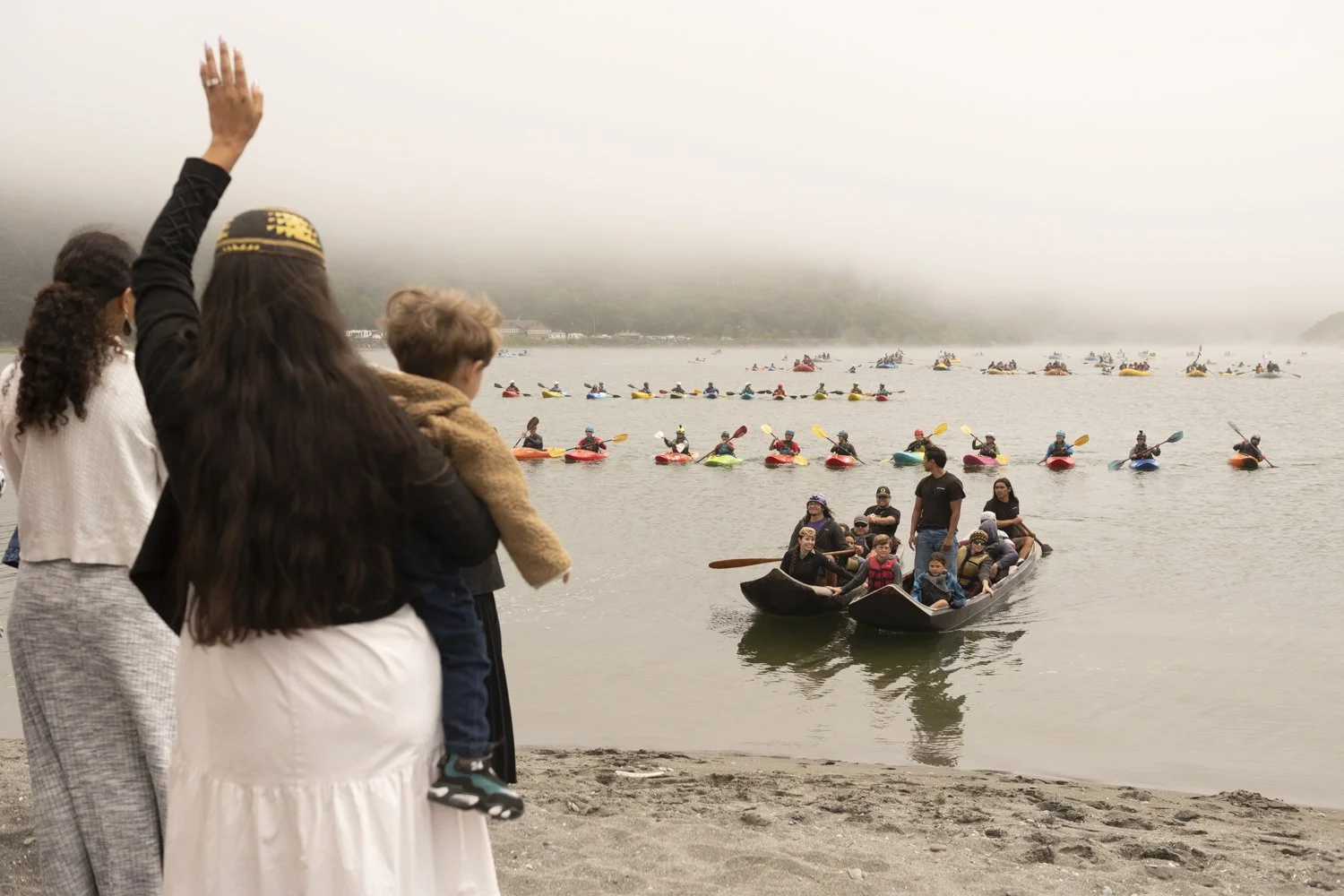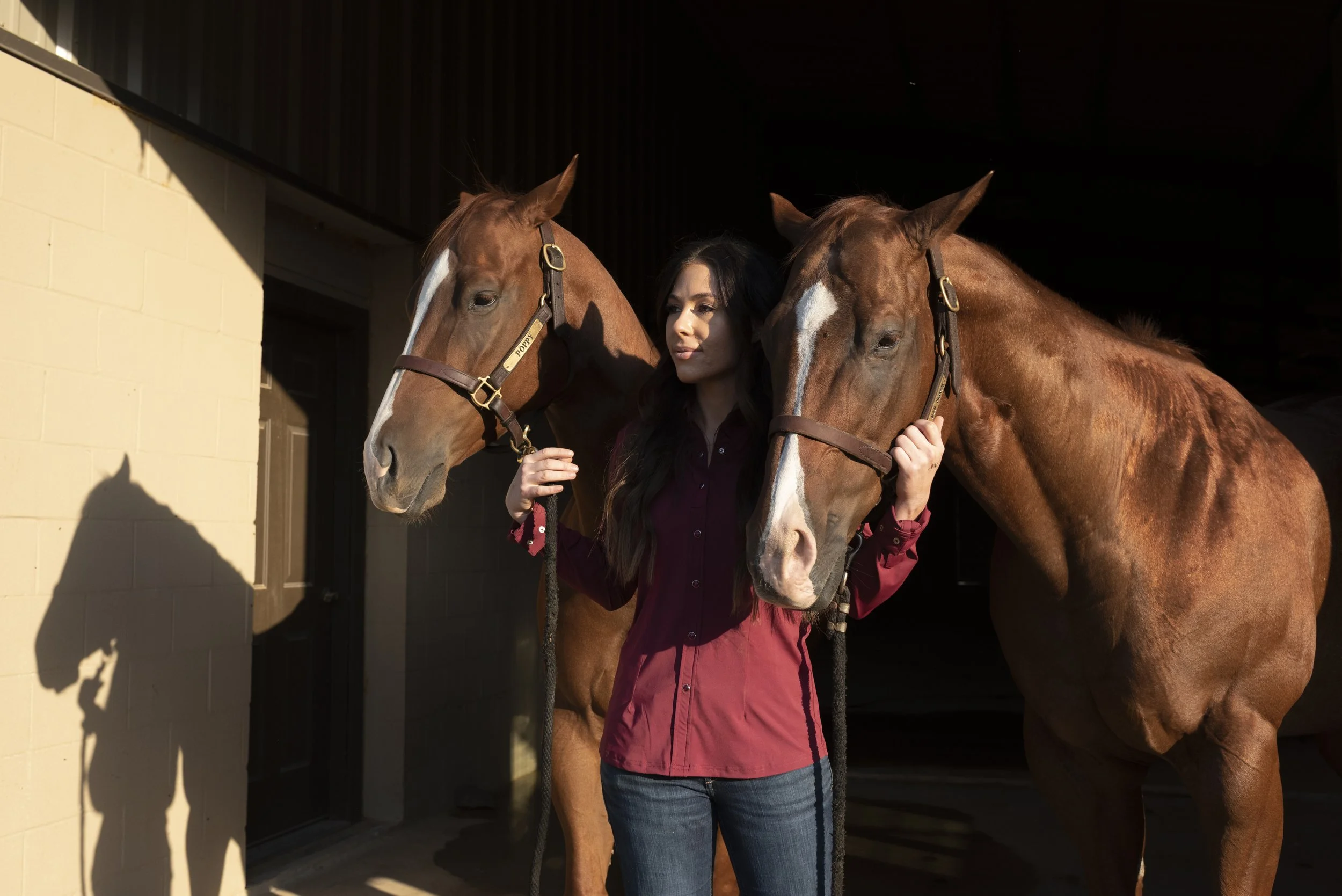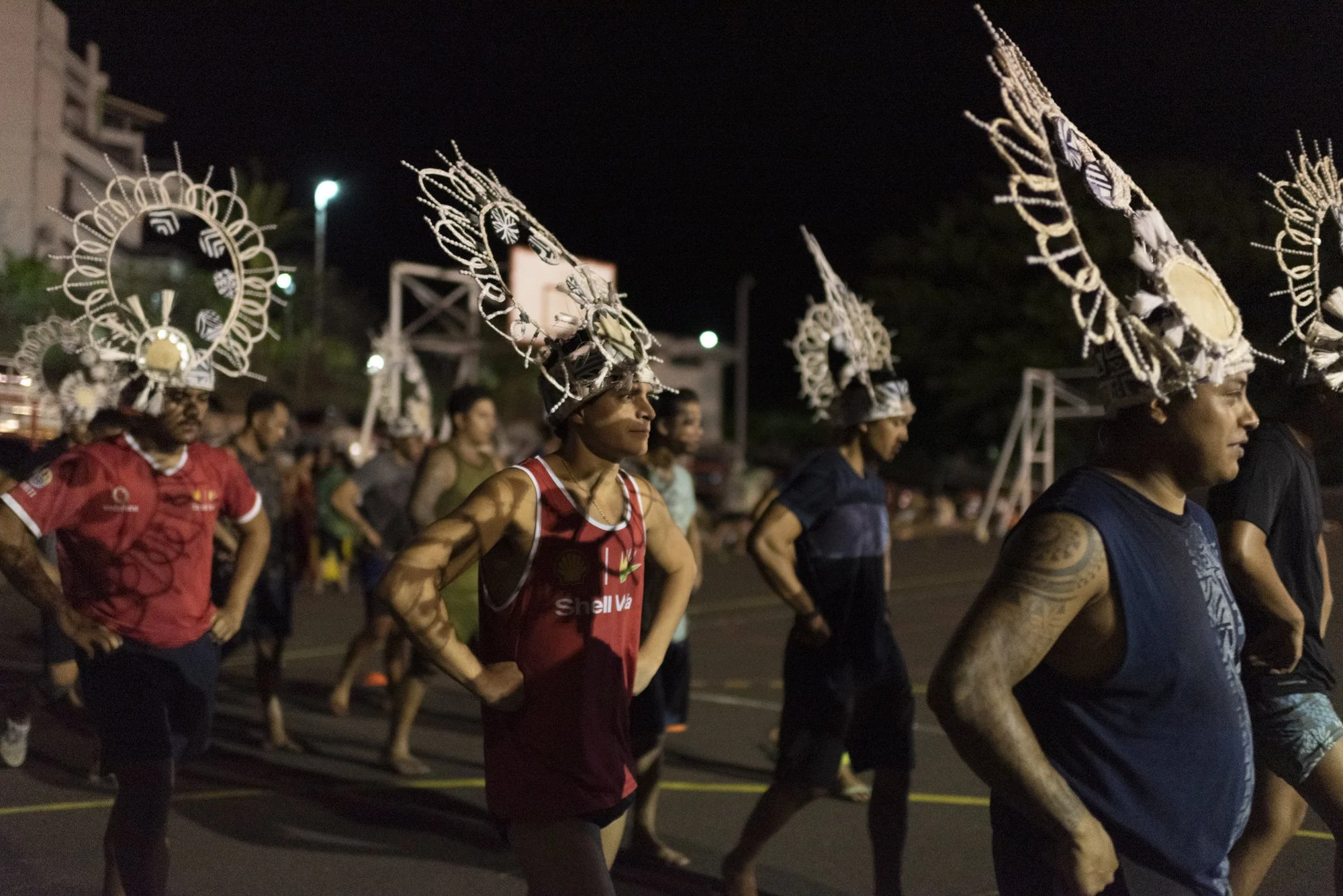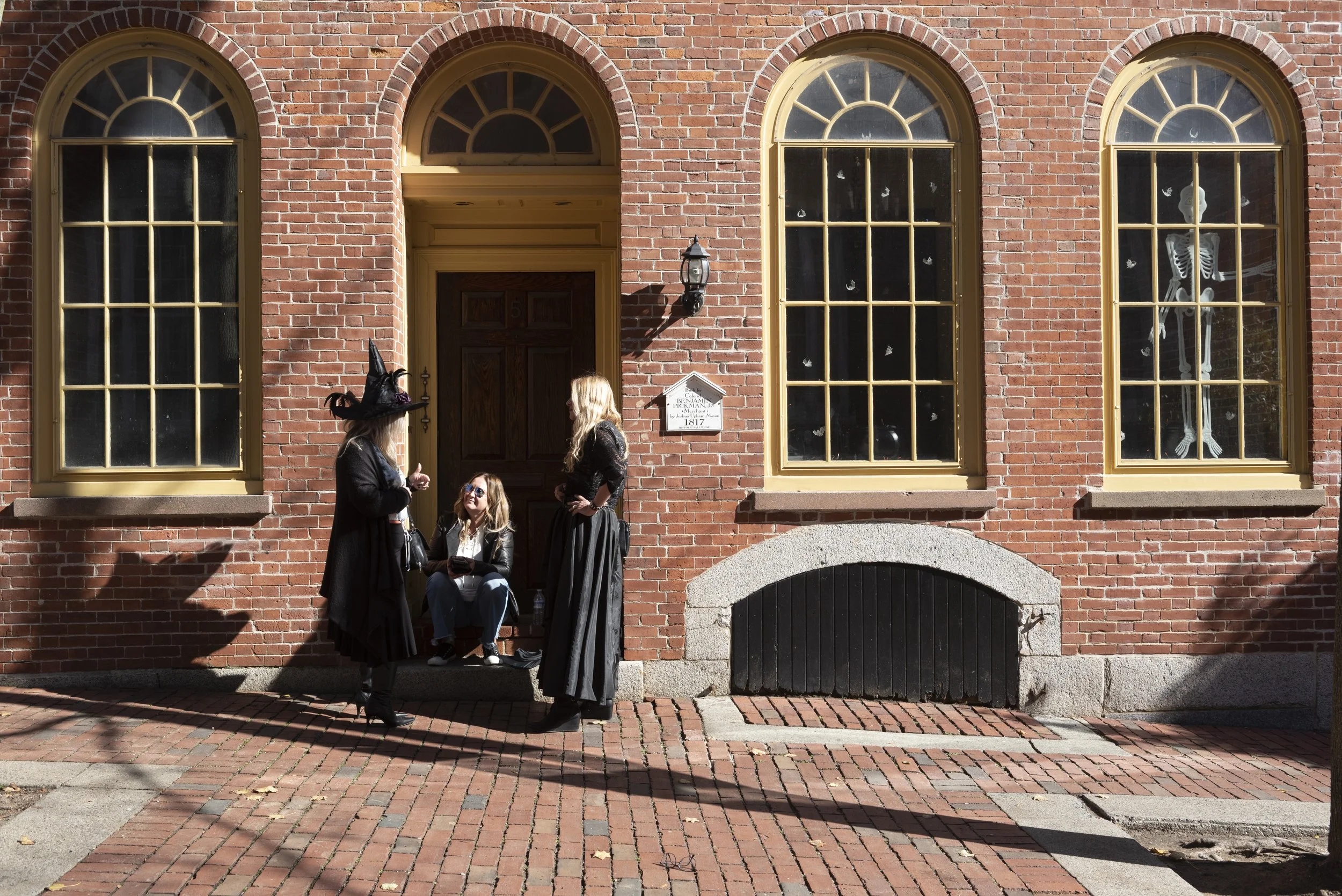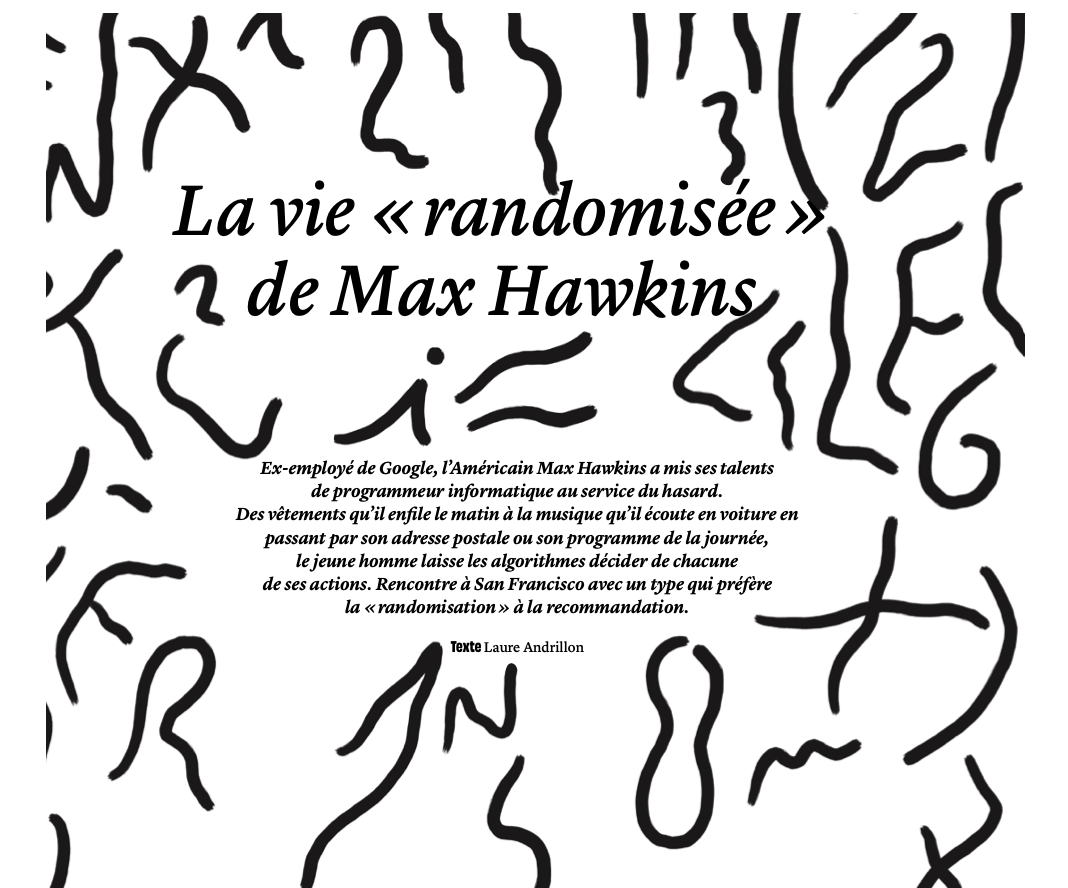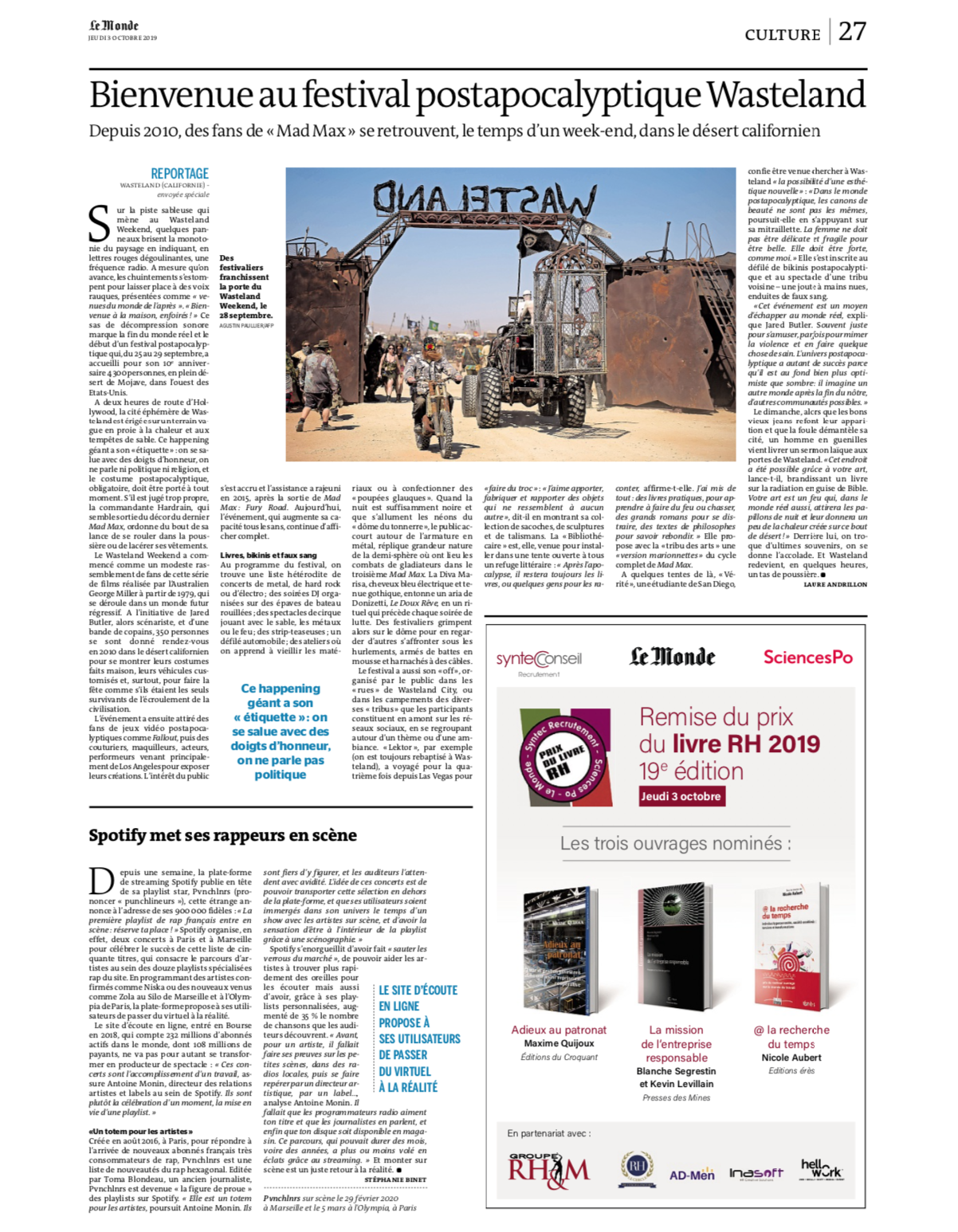Writing
My writing has been published in The Washington Post, Le Monde, Libération, GÉO Magazine, Usbek & Rica Magazine, Reporterre, FishEye Magazine, Slate Magazine, Néon Magazine, WeDemain Magazine, L’Usine Nouvelle, Ouest-France and LensCulture, among others.
First Descent
Libération / Reuters
Writing & photography - For Libération and Reuters, I covered the first descent of the Klamath River since the removal of four hydroelectric dams that had long blocked salmon runs. In June and July 2025, I followed young members of the Yurok, Karuk, and Klamath Tribes as they kayaked through Oregon and California. The trip marked both an environmental milestone and a way for these communities to reconnect with a river central to their history, ancestry and spirituality.
Pet cloning
Usbek & Rica Magazine
Writing & photography - In Whitesboro, Texas, I reported for Usbek & Rica on ViaGen, a U.S. company that clones cats, dogs, and horses, promising pet owners a “lasting love”. Inside the lab, technicians culture skin cells, cryopreserve them, and use somatic cell nuclear transfer to create embryos implanted in surrogate animals. I visited a ranch where seven copies of a polo horse quietly graze as they wait to be delivered to their owner. I met with Kelly Anderson, who cloned her cat Chai after she died abruptly in 2017. It took four years for her to meet Belle, her clone, which he sees as a way to hold onto a piece of a bond she couldn’t let go of. On her own ranch in Collinsville, Rachel Primm, a barrel-racer, stables her champion horse Pepper alongside Poppy, his genetic double. Behind these personal stories lies an industry as secretive as it is profitable, raising questions about ethics, mourning, and the place of animals in our lives.
Coral reef restoration
Géo Magazine
Writing - Off the coast of Moorea, in French Polynesia, a group of island kids known as the Coral Gardeners are pioneering efforts to restore reefs damaged by climate change. For GEO Magazine, I followed them underwater as they clipped coral fragments, grew “baby corals” in nurseries, and transplanted them back onto degraded reefs. The association, founded in 2017, has already replanted more than 100,000 corals and developed new tools such as the ReefCam and ReefApp to monitor reef health in real time. Beyond local restoration, their work has gained global visibility, turning Moorea into a hub of innovation in ocean conservation and a place where visitors can learn about marine ecosystems through ecotours.
Intangible cultural heritage
Géo Magazine
Writing & photography - Each July, Tahiti’s capital Papeete hosts the Heiva, a festival where dance, song, and traditional sports draw thousands of participants from across Polynesia. For GEO Magazine, I went behind the scenes—from secret nighttime rehearsals and the crafting of costumes from fresh banana leaves and tiaré flowers, to the intensity of stone-lifting contests, coconut tree climbing and javelin throws. Many of these practices were once banned under colonial rule, though they have carried spiritual significance since time immemorial. Today the Heiva is more than spectacle; it is a powerful affirmation of Polynesian heritage and cultural resilience.
Big Bend National Park
Géo Magazine
Writing & photography - Separated from Mexico by the Rio Grande, Big Bend is a stunning national park in Texas that encompasses diverse ecosystems, from arid deserts to lush riverbanks and mountains, making it a haven for wildlife. In a single day, one can encounter a black bear in a grove of aspens, witness a herd of collared peccaries stirring on the plain dotted with agaves and yuccas, or catch sight of turtles basking in the sun on the banks of the Rio Grande. Despite its remarkable natural beauty and designation as an International Dark Sky Place, Big Bend attracts far fewer visitors than other national parks due to its remote location. I explored this rugged landscape for GEO Magazine, hiking in the Chisos Mountains, soaking in hot springs by the river and embarking on a canoe trip in the majestic Santa Elena Canyon.
Acadia National Park
Géo Magazine
Writing & photography - The Wabanaki, People of the Dawn—the Maliseet, Micmac, Passamaquoddy, and Penobscot—have lived in the Acadia region, in present-day Maine, since time immemorial. Through their interactions with land, water, sea, and sky, they cultivate knowledge that sustains and transforms their identity. They have lost access to the coast as settlement patterns begun by European colonists continue to encroach on their traditional territories. Today, traditional practices like sweetgrass harvesting are being revived, symbolizing cultural resilience. Archaeological discoveries offer insights into ancestral lifestyles, prompting reevaluation of park collections. I met with ecologists and archeologists conducting research in Acadia National Park to discuss how indigenous-led science can help reframe narratives and reclaim culture, as efforts are underway to integrate Wabanaki culture into park management.
Harlem Honeys & Bears
The Washington Post
Writing & photography - The Honeys and Bears are a synchronized swimming team for seniors founded in 1979 in Harlem. Members are between the ages of 62 and 101 years old, some of whom still remember the era of segregated pools. Several have been swimming their entire lives; some are just beginning to learn. When they slip into the water, gravity seems to evaporate, diseases and injuries go unnoticed to make way for lightness and joy - they feel young again.
Fentanyl poisoning crisis
Usbek & Rica Magazine
Investigation - Overdoses involving fentanyl are behind one in five deaths of people aged 15-24 in California. But many teenagers unknowingly ingest the drug. I met with several families who lost their children after they bought pills from dealers over social media, thinking they were pure oxycodone while they were actually laced with fentanyl. These families find purpose and a bit of solace in raising awareness about the risks of fentanyl poisoning at schools and through parent networks. Perla had to investigate her son’s death in order to identify his dealer and prevent him for doing more harm. Amy testified on Capitol Hill to a House panel investigating big tech and the fentanyl poisoning crisis. Some families have rallied to take legal actions against Snapchat. Some families have rallied to take legal actions against Snapchat. Others have started working directly with teams developing social media apps, hoping to make these platforms safer for kids and teenagers.
Only in Vermont
Géo Magazine
Feature writing & photography - For GEO Magazine, I went on a road trip through Vermont to meet some of the change makers who contribute to the state’s reputation of being an outlier and a pioneer.
Salem witch trials
Géo Magazine
Feature writing & photography - Beginning in January 1692, young women in Salem Village in colonial Massachusetts complained of torments that caused them to writhe, shriek and contort. The horrified community began to hunt down those responsible for the demonic work, and the resulting trials culminated in the execution of 19 innocent people. This story is a look at how Salem’s legacy endures to this day. The tourism industry has increasingly capitalized on this troubled past since the end of the 19th century, keeping its memories alive but also blurring the lines between remembrance and entertainment. In July of 2022, thanks to the efforts of an eighth-grade civics teacher and her students, Elizabeth Johnson Jr, the last person whose name was not officially cleared, was finally exonerated.
Big Apple, revisited
Géo Magazine
Feature writing & photography - Overview of the newly opened or recently renovated attractions not to miss in New York City.
Atmospheric rivers
Libération
News (text & photography) - January of 2023. Residents of the San Joaquin Valley in California had to evacuate their homes due to flooding, water contamination and power outages, as atmospheric rivers have swept over California, claiming at least 19 lives and dumping 24 trillion gallons of rain since December. Not long ago, these communities were worried about the ongoing drought; now they hurry to protect their houses with sandbags and fear that the flooding of the surrounding fields will leave them unemployed for the weeks to come.
Dry wells
Reporterre
Feature writing & photography - In the Central Valley of California, where more than half of the fruits and vegetables produced in the US are grown, entire communities of Latino farmworkers lack access to drinking water due to the severity of the ongoing drought. In Tulare and Madera counties, some domestic wells have gone dry or low levels have aggravated the ongoing issue of water contamination. To avoid daily exposure to toxic levels of arsenic and nitrates, residents have to bathe their babies and brush their teeth with bottled water. Grassroots activists are determined to remind politicians that access to clean, safe and affordable water is a human right.
Warming cities
Géo Magazine
Feature writing - In Phoenix, where the sun shines three hundred days a year, inhabitants already fight on a daily basis against the harmful effects of climate change. The capital of Arizona has become an open-air laboratory preparing itself and other cities to cope with warmer temperatures . Photographs © Olivier Touron
Randomized living
Usbek & Rica Magazine
Feature writing - Profile of Max Hawkins, a former Google employee who uses computer engineering skills to pursue “randomization” rather than recommendation. He lets algorithms make decisions about his daily life: which clothes to put on, which music to listen to, where to move, who to meet. I joined him in a random location, after his personal algorithm had him travel through California during another stretch of nomadic life.
Storm chasing
GÉO MAGAZINE
Feature writing - I joined meteorologist and storm chaser Lanny Dean on a road trip that took us through Oklahoma, Kansas and Texas, in pursue of majestic clouds and captivating tornadoes.
Water crisis in the West
Libération
Feature writing & photography - In Klamath Falls, Oregon, the ecosystem is disrupted by the depletion of the lake. To protect the C’wam and Koptu, two species of native sucker fish sacred to the Klamath Tribes and listed as endangered species since 1988, the federal government announced in the spring of 2021 that the dam gates would remain shut for the first time since 1907, depriving 1200 farm operations and several wildlife refuges from their main water source, amid a historic drought for the American West.
Bootleg Fire
Libération
Reportage - July 2021. Amid a historical drought, the Bootleg Fire raged in Southern Oregon. Volatile and violent to the point of generating its own climate, this atypical fire forced firefighters to adapt.
Decluttering
Libération
Feature writing - Why are the books of Marie Kondo, the guru of tidiness, so successful? Because our compulsion to hoard objects is not an individual disease but a societal problem. In the United States, writers and researchers analyze the origins of our need to accumulate and advocate for a major decluttering.
Survivalism
Usbek & Rica Magazine
Feature writing & photography - Robert Vicino and his son Dante purchased a land at the base of the Black Hills in South Dakota, where 575 concrete and steel bunkers are still standing. In this fortress designed to store bombs and ammunition during the Second World War, they hope to build the largest survival community on earth. They call it xPoint, referring to “the point in time when only the prepared will survive.”
Ethics of meritocracy
Libération
Interview - According to Michael J. Sandel, the meritocratic aspiration generates excess among the winners while it stirs up the resentment of the losers, only widening the gap separating them. In his book, The Tyranny of Merit, this professor of political philosophy at Harvard University encourages elites of meritocracy from around the world to aim for humility. By revealing the "hidden side" of this much-loved notion of merit, Michael J. Sandel hopes to cure us of our obsession with success and to give new momentum to what he considers a neglected quest: the search for "common good".
Extinction of silence
Usbek & Rica magazine
Feature writing & photography - The Olympic Peninsula in Washington is one of the silent battlegrounds where Quiet Park International activists fight to protect “natural quiet”, defined as the sounds of nature without human-made noise. I joined acoustic ecologists Laura Giannone and Gordon Hempton on their journey to record natural quiet, from the muddy trails of Hoh rainforest to the hilly streets of West Seattle.
Andrology
Libération
Interview - Why was andrology born a century after gynecology? And why does a trip to the andrologist still feel like an unfamiliar concept? In a book blending medical history, gender theory and sociology, Rene Almeling argues that the consequences of this "non-production of knowledge" throughout the 20th century go way beyond just healthcare. According to this Yale sociology professor, the journey of andrology has left a lasting mark on American culture and politics. Its absence has played a role in shaping beliefs about reproduction, ones that we still witness and inherit today.
Libération
Reportage - Daniela, Deya, and Juan Carlos call Phoenix, Arizona, home. Despite being unable to cast their votes due to entering the U.S. illegally as kids—brought over from Mexico by their parents at eight months, one year, and seven years old—they're deeply invested in shaping the historically conservative Phoenix into a Democratic stronghold. Faced with an uncertain future and occasional deportation threats, they're dreaming big in a bid to sway the tides in the U.S. presidential election. Through their stories, we catch a glimpse of the profound impact the four years of the Trump administration had on the eleven million undocumented people currently residing in the United States. Portraits : Adriana Zehbrauskas pour Libération
“Animal Liberation” & VR
Usbek & Rica Magazine
Feature writing & photography - Direct Action Everywhere, a Berkeley-based organization, strategically employs technology in its advocacy for "animal liberation." DxE eschews the common use of discreet cameras or covertly captured imagery from agricultural facilities. Instead, its members conduct operations with unveiled faces, equipped with conspicuous tools: drones and a pole housing six high-definition cameras, culminating in a 3D film experienced through virtual reality headsets. These activists intend to present this footage during legal proceedings, seeking to demonstrate that their actions constituted "rescue" rather than "theft" of animals. They posit that virtual reality holds the potential to catalyze a moral epiphany, dismantling societal blind spots that have permitted the acceptance of violence against animals. The leader of DxE faces a potential sentence of up to sixty years in prison.
Fossil energies
Libération
Reportage - In December, the Trump administration will auction drilling permits for federal lands in California—a first since 2012. This decision holds significant symbolism in a state that positions itself at the forefront of the energy transition. In Kern County, a predominantly Republican stronghold in 2016, many welcome the prospect of these drills generating employment opportunities or lowering gasoline prices. However, in this region nicknamed “the oil highway”, which boasts some of the most polluted air in the United States, certain residents view this move as another affront to environmental justice.
New revolutions
Libération
Feature writing - Why do some revolutions take root while others fizzle out? Why #MeToo and Black Lives Matter, when numerous other feminist and anti-racist activists have tirelessly advocated with little impact? Several American scholars in recent works attempt to elucidate what ignites the spark in the era of social media and emerging solidarities.
Wildfires in California
libération
Reportage - The historically significant wildfires of August 2020 struck California at a time when the state was particularly vulnerable, still grappling with the COVID-19 epidemic after a remarkable resurgence in cases starting mid-June. This concatenation of disasters put Californians to a severe test. They dubbed August "the terrible month" in a 2020 that was no less challenging.
Black Lives Matter
libération
Reportage - Every night since the death of George Floyd, a procession of protesters gathers in Portland, the whitest of major American cities, demanding social justice and an end to racial discrimination. This has drawn the ire of Trump, who dispatched federal troops to restore "law and order."
History of epidemics
libération
Entretien - In "Epidemics and Society," American historian Frank Snowden recounts how, from antiquity to the contemporary era, endemic episodes have shaped our civilizations as profoundly as wars, economic crises, or revolutions. These upheavals have facilitated advancements such as the rise of public health and improvements in urban planning. Despite emerging in a context of vulnerabilities created or perpetuated by society, they also provide opportunities for profound introspection and reassessment.
Essential workers during Covid
libération
Reportage - The Central Valley in California produces two-thirds of the fruits and one-third of the vegetables in the United States. During the pandemic, despite inadequate health and social protections, 400,000 agricultural workers, 92% of whom are Latinos, continued their hard work.
libération
Enquête - Like Narcissus admiring himself in the water to the point of forgetting, today we are captivated by the reflections on the screens of our smartphones. Have technologies changed us, influencing even our most intimate feelings such as loneliness, boredom, and wonder? This is the subject of a new wave of research in the United States.
Psychology of pandemics
libération
Interview - Several months before the emergence of Covid-19, Professor Steven Taylor, a researcher in the Department of Psychiatry at the University of British Columbia in Vancouver, published The Psychology of Pandemics. In his work, he emphasizes the crucial importance of reintegrating psychology into crisis emergency management, as it is the emotions, beliefs, and expectations of the population that will determine whether an epidemic is contained or not.
Outdoors industry & climate change
libération
Reportage - In the fall of 2018, the renowned Aspen Snowmass winter sports resort in Colorado initiated the "Give a Flake about climate change" campaign. The operation aims to turn the ski resort's customers into activists in the fight against climate change, encouraging them to call out elected officials for their lack of action in addressing the urgency of the problem. It directly targeted the Trump administration throughout the 2020 presidential campaign.
Super Tuesday
Libération
Reportage - March 2020. The electorate of the Central Valley, an agricultural corridor connecting San Francisco to Los Angeles inland, is highly coveted by candidates in the U.S. presidential election. Drawing lessons from the 2016 primaries, where Hillary Clinton won 10 out of 11 states with a population of over 15% Hispanic, "Uncle Bernie" started campaigning in the region well ahead of his rivals.
Tax justice
Libération
Profile - Dubbed the "Piketty Boys," Emmanuel Saez and Gabriel Zucman are consulted by the leftmost candidates in the American Democratic primary. For these French economists from the University of Berkeley, the United States, a current example of extreme social inequalities, is a "fascinating laboratory" that could reconnect with its history and eventually become a model of tax justice for European countries.
Plant poaching
géo magazine
Investigation - From the cliffs of Northern California to the Arizona desert, an investigation into plant poaching in the United States—an under-documented trade with tentacles reaching as far as Asia.
Wildfires in California
Libération
Reportage - November 2019. One year after the deadly Camp Fire, a dozen wildfires devastated California. In Sonoma County, north of San Francisco, 185,000 residents had to be evacuated. Once again.
Libération
Feature writing - Crafted during the Cold War, space law is now revealed to be outdated as private companies enter the race and technological capabilities undergo significant advancements. Resource exploitation, waste management— the legal framework for celestial conquest needs to be reconsidered.
Libération
Feature writing - Space doesn't have an owner, but the objects that reach it do. Based on this observation and to preserve "humanity's treasures" such as the footprint of the first step on the Moon, American researcher Michelle Hanlon has embarked on the development of an unprecedented legal protocol.
Libération
Feature writing - The boundary at which outer space begins is not clearly defined by international law. This lack of clarity in space boundaries has the potential to be a source of conflicts.
“Who killed the world?”
usbek & rica magazine
Reportage (text & photography) - In the arid Mojave Desert of California, 4,300 people gathered to live in the post-apocalyptic setting of Wasteland City, a makeshift and ephemeral community. Festival-goers came from all corners of the United States and even from abroad to don their costumes and play the roles of Apocalypse survivors for five days—some for fun, others out of concern, and a few out of obsession.
Après l’Apocalypse
Le monde
Reportage - Every year for the past decade, thousands of "Mad Max" fans come together to build a makeshift city in the arid Mojave Desert of California.
Demandeurs d’asile
libération
Reportage - From Tucson in Arizona to Tijuana in Mexico, I met migrants attempting to seek asylum in the United States, navigating through an increasingly intricate administrative labyrinth.
Future of funerals
Usbek & rica magazine
Reportage - In a groundbreaking move, the state of Washington in the U.S. legalized human composting in April 2019. Positioned as an environmentally conscious alternative to cremation and burial, this innovative "third way" post-mortem, also dubbed "humusation," is increasingly capturing the interest of individuals looking to minimize their environmental impact once their hearts cease to beat. This report takes us to Seattle, where the inaugural urban human composting center was slated to open its doors by the end of 2020.
Long-term thinking
Libération
Feature - In San Francisco, the Long Now Foundation engages technophiles from around the globe in conversations pondering what the world will be like thousands of years from now. Their aim is to foster a deeper sense of justice and expand our capacity for empathy toward future generations and civilizations.
Pesticides in the Central Valley
libération
Reportage - In the Central Valley, citrus pickers and their children suffer due to dangerous levels of chlorpyrifos, a neurotoxic chemical whose ban was revoked by the Trump administration.
Futurist city
Usbek & rica magazine
Reportage (writing & photography) - Jacque Fresco, an architect and designer who passed away in 2017 at the age of 101, didn't believe in free will and advocated for the optimal management of human lives by supercomputers. His partner Roxanne Meadows now carries the torch. In Florida, she welcomed me into the Venus Project, a research center open to the public that offers a glimpse of their utopian society: a technocracy aimed at liberating us from poverty, suffering, and wars, even if it means sacrificing art and beauty in the process.
The Long Now clock
usbek & rica magazine
Reportage (writing & photography) - In 1995, American computer scientist Danny Hillis embarked on an ambitious project: to build a clock robust enough to chime for ten thousand years. The goal was to alter our relationship with time and instill a taste for the future. Thirty years later, his dream is on the verge of realization, thanks to the fortune of Jeff Bezos, CEO of Amazon, who personally committed to funding the construction of the giant clock regardless of its final cost.
Technological dreams
libération
Interview - Combat robots, a "hacker" witch, bows with intelligent arrows, autonomous tripods serving nectar or ambrosia... Adrienne Mayor, a historian specializing in antiquity who resides in the heart of Silicon Valley, warns against those who want to "play God" with artificial intelligence.
Searching for migrants
Néon magazine
Reportage (text & photography) - Every month, volunteers from Aguilas del Desierto, a San Diego-based organization, comb the active zones of the border in search of migrants who have gone missing during their perilous journey. Armed with extra water and the hope of saving a life, they also carry hospital masks and wooden crosses, attaching them to their backpacks. It's a somber march, knowing they'll either return with the weight of finding nothing, or with GPS coordinates marking the location of a life lost. This is their way of providing solace to grieving families and contributing to the unofficial count of migrants who have perished in the unforgiving desert.
Ethics of philanthropy
libération
Interview - Could making a donation actually favor the wealthy? That's the controversial argument put forth by Rob Reich, a political science professor at Stanford University, who demonstrates that the donation system in the United States, and also in France, exacerbates inequalities rather than reducing them. He questions the tax benefits granted to donors and private foundations.
Women’s wrath
libération
Feature - In the United States, following the #MeToo movement, numerous women have chosen not to bury their anger but to finally use it as a political force in the public sphere. Three essays published within a few weeks of each other celebrate this explosive liberation.
White privilege among youth
Libération
Interview - Who do white children play with at recess? Who do they encounter during soccer practice? When do their parents lock the car doors? An interview with sociologist Margaret Hagerman, who spent two years with affluent white families in the American Midwest.
De-extinction
usbek & rica magazine
Reportage (text & photography) - The "Frozen Zoo" in San Diego, California, is home to the world's largest collection of animal cells for vertebrates. Established in 1972 by a visionary geneticist, this "library of life" also develops a "de-extinction" program for species like the Northern White Rhino, of which the last male specimen died in March 2018. The goal is to revive an independent and fertile herd within a few decades.
Emoji Academy
we demain magazine
Feature - The Unicode Consortium holds the power to accept or reject the emoticons that adorn our messaging apps. In June 2018, the organization added 66 emojis to its list. Its vice-president explains how the selection of these seemingly innocuous images takes place.
Art in space
usbek & rica magazine
Portrait - On December 3rd, 2018, a SpaceX Falcon 9 rocket launched from Vandenberg Air Force Base in California, carrying a payload of 64 small-sized satellites. Amidst the array of measuring instruments, positioning technologies, and telecommunication tools, a distinct satellite captured attention—it's the latest creation from American artist Trevor Paglen.
Migrant caravan
Slate Magazine
Reportage - November 2018. In a municipal sports complex in Tijuana, just a stone's throw from the rust-colored border wall between Mexico and the United States, more than 4,500 migrants from the caravan found refuge. Their hopes are pinned on securing an appointment at the border post to seek asylum from U.S. authorities. As of November 20th, the shelter was teeming with people, surrounded by police cars. With nightfall, newly arrived families roamed the streets, blankets on their backs and tired soles, desperately seeking shelter.
Biased algorithms
LIBÉRATION
Interview - If you type "black girls," "Jews," or "beautiful" into the search engine, what do you get? In her latest book, American researcher Safiya Umoja Noble denounces the sexism, discrimination, and racism reflected in the results displayed by the platform. According to her, Google, with its antidemocratic and advertising-driven intentions, enjoys an excess of trust from internet users.
Urban utopia
usbek & rica magazine
Feature (writing & photography) - In 1972, Italian-American architect Paolo Soleri broke ground on a pioneering project—an eco-friendly city in the heart of the Arizona desert. Now, over five decades later, several hundred "arcons" continue to call this evolving city construction site home, resisting the label of an "urban utopia." This story takes you to Arcosanti, where time flows without clocks, and the bells chime only with the breeze.
Free speech on campus
libération
Feature - In the United States, a new generation of students is challenging the notion of absolute freedom of speech. To avoid offending the sensibilities of minorities, they advocate for universities to become "safe spaces," shielded from any hateful speech. But does this risk stifling debate and blinding the youth to different perspectives?
Life on Mars
usbek & rica magazine
Reportage (text & photography) - Nestled in the canyons of Utah, USA, the Mars Desert Research Station serves as a haven for aspiring astronauts eager to follow in the footsteps of Thomas Pesquet. A crew of aerospace engineering students from the Toulouse School of Engineering, stationed there for three weeks, has allowed me to get a glimpse into the life of a "marsonaut."
Food inequalities
libération
Interview - According to American sociologist Priya Fielding-Singh, attributing unhealthy eating habits among the less affluent solely to a lack of information or cost issues is inadequate. She contends that disadvantaged parents succumb to the allure of soda because it's the only means they have to momentarily alleviate the constraints their children face. She argues that the key lies in altering the symbolic value attached to food.
Ocean pollution
usbek & rica magazine
Reportage - Boyan Slat gained global recognition with his Ocean Cleanup project. The 23-year-old Dutch innovator conceived, at the age of 17, a massive floating barrier designed to clean the Pacific Ocean of its plastic waste. The assembly of this ambitious project is currently underway, with its highly anticipated launch scheduled for this summer. I visited the preparations at the shipyard in Alameda, located in the San Francisco Bay.
Portraying Appalachia
fisheye magazine
Feature - Spanning a dozen states in eastern North America, the Appalachian Mountains have often been unfairly portrayed as a symbol of the U.S.'s white, impoverished, and less-educated population. Talented photographers challenge these stereotypes, capturing a more genuine and nuanced image of this region affected by the coal industry's decline and often associated with supporting Donald Trump in elections.
Transhumanism
libération
Profile - Zoltan Istvan hopes to become the first transhumanist governor of California. He argues that eternal life is not only possible but also desirable. I asked him about life, death, freedom… and why he dreams of merging humans with machines.
Future of food
usbek & rica magazine
Feature (writing & photography) - Cultured meat, milk-free cheese, synthetic gelatin—dozens of researchers in the San Francisco Bay Area are launching startups to craft the food of the future in laboratories. Their goal is to feed 10 billion humans without harming a single animal, even if it means embracing genetically modified organisms. I ventured inside the region's incubators to get a glimpse of the innovations being brewed by foodtech entrepreneurs.
John Chiara
fisheye magazine
Profile - Going against the digital rush, American artist John Chiara employs an oversized camera obscura that he transports like Sisyphus' stone. This laborious process lends a powerful evocation to his monumental landscape photos—both natural and urban. From the memory of places to intimate recollections, his work serves as an invitation to reverie.
Visual arts & VR
le monde
Feature - A look at a generation of artists who embraces new digital tools that allow them to paint without a canvas or sculpt in the air.
Journalism ethics
libération
Interview - Concerned with the challenges brought by the Trump era's political climate and the transforming landscape of journalism, Barbie Zelizer, a former journalist and a researcher at the Annenberg School for Communication, calls for an ethical revolution. She argues that existing codes contribute to a detrimental stagnation within the profession.
Deliberative democracy
libération
Profile - James Fishkin is a pioneer in developing methods of deliberative polling, which involve selecting hundreds of individuals representative of the population to engage in discussions on pressing issues, ranging from managing excess snow in Japan to Denmark's potential adoption of the euro. His aim is to provide a more authentic reflection of citizen voices in the decision-making process.
"Beautiful with only one breast"
slate magazine
Investigation - Mastectomy affects one-third of women diagnosed with breast cancer in France; out of this third, 78% of women opt not to undergo reconstruction, which often means going against the expectations of their doctors and loved ones.
Emeric Lhuisset
le monde
Profile - Emeric Lhuisset exhibited his photographs taken at the archaeological site of Girsu in Iraq at the Arab World Institute in Paris. Profile of this unique multimedia artist.
Women photographers
LENS CULTURE
Review - An eye-opening exhibition in Paris argued that we should not be interested in certain photographs because they were shot by women but because they remain examples of powerful, even ground-breaking image-making, well over a century after they were first made.
Michel Slomka
Lens CULTURE
Interview - On July 11th, 1995, in Srebrenica, Bosnia, 8,000 Muslim Bosniaks were killed by units of the Bosnian Serb Army of Republika Srpska. This event is considered the greatest massacre of Europe since the end of the Second World War. Twenty years later, relatives are still waiting for unburied bodies to be identified. Michel Slomka, a French freelance photographer, went to Srebrenica on several trips between 2010 and 2015. I interviewed him about his series “Retour à la terre” (“The Way Back to Srebrenica”).
War photography
libération
Feature - According to independent American critic A. D. Coleman, the renowned reportage by Robert Capa during the D-Day landing is surrounded by numerous falsehoods. These revelations caused turmoil within the photojournalism world, where the co-founder of the Magnum agency has been deemed an icon for decades.
